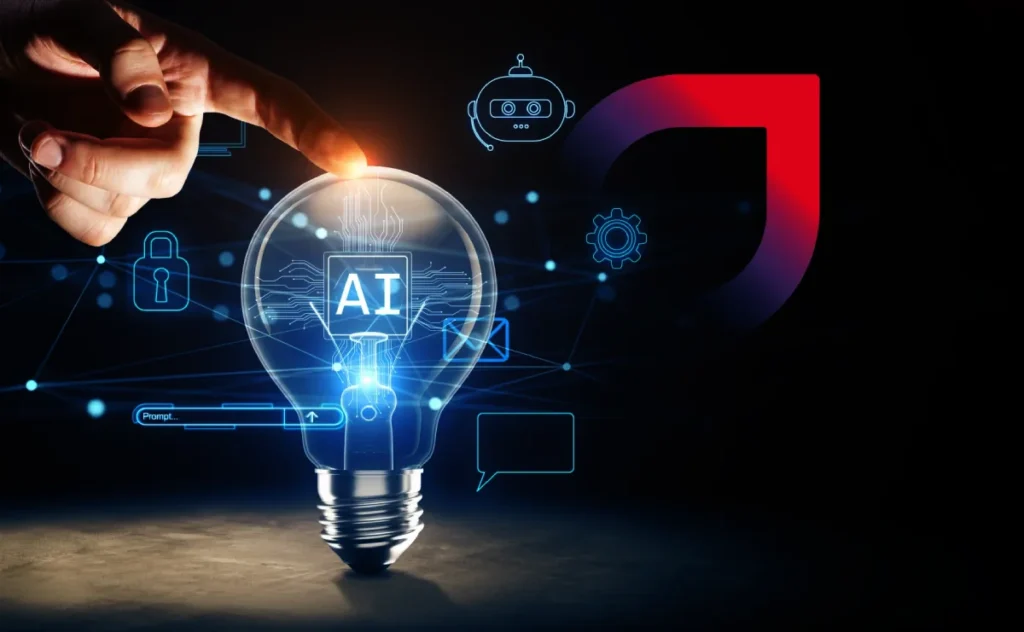
Artificial intelligence (AI) is no longer a futuristic concept, but a transformative force reshaping industries and society as we know it. 2024 witnessed a surge in AI adoption, with groundbreaking advancements in generative AI, machine learning, and deep learning. As we venture into 2025, these trends are poised to accelerate, ushering in a new era of AI-powered innovation.
Generative AI Goes Multimodal
- Beyond Text and Image: While 2024 saw the rise of text-to-image and text-to-text models like GPT-4 and Midjourney, 2025 will witness the emergence of truly multimodal AI models. These advanced systems will seamlessly integrate various data modalities, such as text, images, video, audio, and even code, into a unified framework.
- Enhanced Creativity and Innovation: This convergence will unlock unprecedented creative possibilities, enabling AI to generate more nuanced and sophisticated outputs. Imagine Artificial intelligence systems composing original music videos, designing interactive narratives, or even creating personalized virtual experiences.
- Technical Challenges: Developing and training multimodal models present significant technical hurdles, including the need for massive datasets, robust computational power, and innovative architectures that can effectively process and integrate diverse data types.
Arise AI Agents
- Autonomous AI Systems: AI agents are autonomous systems capable of performing complex tasks and achieving specific goals within a given environment. These agents will increasingly become prevalent in various domains, from customer service and virtual assistants to robotics and autonomous vehicles.
- Decentralized AI: Many AI agents will operate in decentralized environments, interacting with other agents and humans to achieve collective objectives. This decentralized approach will foster greater adaptability and resilience in Artificial intelligence systems.
- Ethical Considerations: The development and deployment of these agents raise critical ethical questions regarding autonomy, accountability, and the potential for unintended consequences. Robust safety mechanisms and ethical guidelines will be crucial to ensure responsible AI agent development.
AI for Scientific Discovery
- Accelerating Research: AI is poised to revolutionize scientific research across various disciplines, from drug discovery and materials science to climate modeling and astrophysics.
- Data-Driven Insights: AI algorithms can analyze massive datasets, identify patterns, and generate hypotheses that would be difficult or impossible for human researchers to uncover. This data-driven approach will accelerate scientific discovery and lead to breakthroughs in areas such as medicine, energy, and environmental sustainability.
- AI-Powered Tools: The development of AI-powered tools, such as AI-assisted laboratory automation and microscopy, will further enhance the capabilities of researchers and accelerate the pace of scientific progress.
Edge AI and Decentralized Computing
- AI at the Edge: Edge AI, which involves deploying Artificial intelligence models on edge devices like smartphones, IoT devices, and autonomous vehicles, will gain significant momentum in 2025. This approach reduces latency, improves privacy, and enables real-time decision-making in resource-constrained environments.
- Decentralized AI Networks: Decentralized AI networks, such as federated learning, will enable collaborative AI model training while preserving data privacy. These networks allow multiple devices or organizations to collectively train a shared AI model without sharing their raw data.
- Applications: Edge AI and decentralized computing will find applications in various domains, including autonomous driving, industrial automation, healthcare, and smart cities.
AI for Social Good
- Addressing Global Challenges: AI has the potential to address some of the world’s most pressing challenges, such as climate change, poverty, and inequality.
- AI for Sustainability: AI can be leveraged to optimize energy consumption, develop sustainable agriculture practices, and predict and mitigate natural disasters.
- Inclusive AI: Ensuring that AI technologies are accessible and beneficial to all members of society is crucial. Efforts to develop inclusive Artificial intelligence solutions that address the needs of underserved communities will gain importance in 2025.
The Democratization of AI
- AI for Everyone: 2025 will witness a continued push towards democratizing AI, making it more accessible to individuals and organizations of all sizes.
- Low-Code/No-Code AI Tools: The emergence of user-friendly, low-code/no-code AI development platforms will empower individuals with limited technical expertise to build and deploy AI applications. This will democratize AI development and foster innovation across various sectors.
- AI-Powered Citizen Science: Citizen science initiatives will leverage AI to analyze vast amounts of data collected by volunteers, enabling groundbreaking discoveries in fields like environmental monitoring, biodiversity conservation, and disease surveillance.
AI for Enhanced Cybersecurity
- Proactive Threat Detection: AI-powered cybersecurity solutions will play a crucial role in proactively detecting and mitigating cyber threats, such as malware, phishing attacks, and ransomware.
- AI-Driven Threat Intelligence: AI algorithms will analyze massive datasets to identify emerging threats, predict attack vectors, and provide real-time threat intelligence.
- Autonomous Response Systems: AI-powered systems will automate threat response actions, such as isolating infected systems, patching vulnerabilities, and neutralizing attacks.
AI-Driven Personalized Medicine
- Precision Diagnostics: AI will revolutionize medical diagnostics by enabling more accurate and personalized diagnoses. AI algorithms can analyze medical images, patient data, and genetic information to identify subtle patterns and predict disease risks.
- Personalized Treatment Plans: AI-powered systems will assist healthcare providers in developing personalized treatment plans tailored to individual patient needs and characteristics.
- Drug Repurposing: AI can accelerate drug discovery and repurposing by analyzing existing drug databases and identifying potential new uses for existing medications.
AI in the Creative Arts
- AI as a Creative Tool: AI will increasingly be used as a creative tool by artists, musicians, and filmmakers. Artificial intelligence algorithms can generate new musical compositions, create unique visual art styles, and even assist in the writing and directing of films.
- Exploring New Forms of Art: The integration of AI in the creative arts will lead to the emergence of new art forms and creative expressions.
- Ethical Considerations: The use of Artificial intelligence in the creative arts raises ethical questions about authorship, originality, and the potential impact on human creativity.
Significance of AI Literacy
- Developing AI Skills: As AI becomes increasingly integrated into our daily lives, the demand for AI literacy will continue to grow.
- AI Education Initiatives: Educational institutions will play a crucial role in developing AI literacy programs to equip students with the knowledge and skills necessary to thrive in an AI-powered world.
- Promoting Responsible AI Development: AI literacy will also be essential for fostering a broader understanding of the ethical implications of AI and promoting the responsible development and deployment of AI technologies.
Challenges and Considerations
While AI presents immense opportunities, it also brings forth challenges that need to be addressed:
- Bias and Fairness: AI algorithms can perpetuate existing biases if not developed and trained responsibly.
- Data Privacy and Security: The use of AI raises concerns about data privacy and security, as AI systems often rely on large datasets.
- Explainability and Transparency: The complex nature of AI algorithms can make it difficult to understand how they arrive at decisions, raising concerns about transparency and accountability.
- Job Displacement: Automation driven by AI could lead to job displacement in certain sectors.
2025 promises to be a pivotal year for AI. These trends have the power to create a more sustainable, equitable, and prosperous future for all.
Table of Contents


